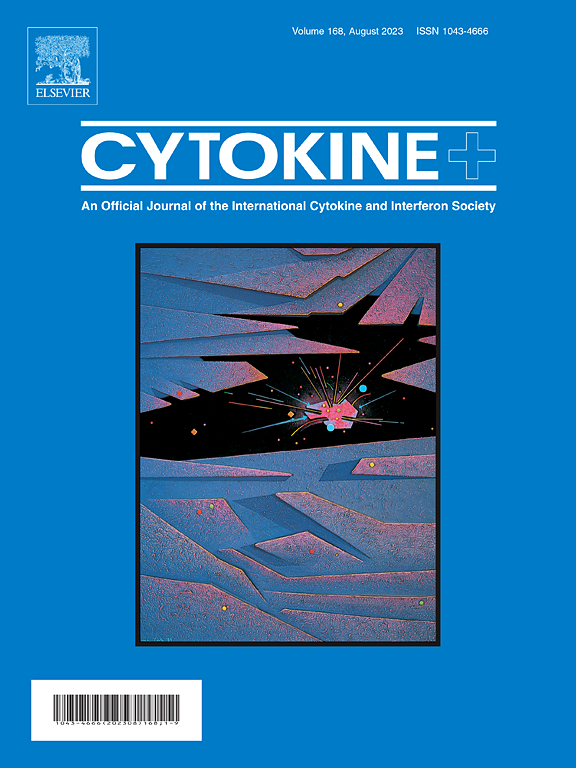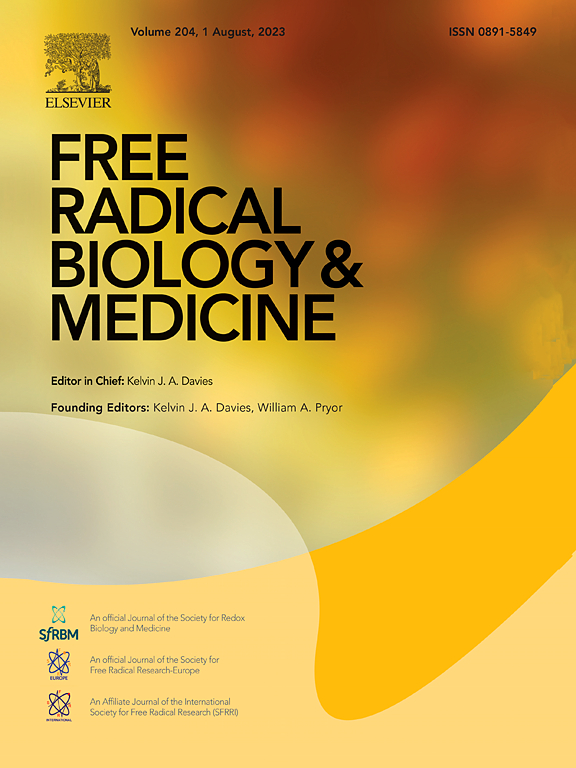Acute Kidney Injury
How to submit an article:
- Registered users can submit any published journal article that has a unique DOI (Digital Object Identifier) name or link to Research Hub.
- For example, you can paste the full DOI link:
https://doi.org/10.1109/5.771073or just the DOI name:10.1109/5.771073into the field above and click submit. - The person who is first to submit a valid article to Research Hub will forever be credited for it, and every article submission earns you +6 Research Points.
Published research studies are articles that present the findings of original research that has undergone a peer-review process and has been made publicly available in scholarly journals, books or other media.

The hepato-renal protective potential of walnut seed skin extract against acute renal ischemia/reperfusion damage
2022 May Cytokine Askin S, Askin H, Dursun E, Palabiyik E, Uguz H, Cakmak , et al.
Animal Study Walnut Antioxidant Nephroprotective Effects Hepatoprotective Walnut Seed Skin Anti-Inflammatory Hepatorenal Protective Acute Kidney Injury Acute Renal IschemiaWalnut seed skin extract demonstrates potential hepato-renal protective effects, inhibiting inflammatory responses, oxidative stress and apoptosis, in kidney-damaged Sprague-Dawley rats.

Tetramethylpyrazine: An Active Ingredient of Chinese Herbal Medicine With Therapeutic Potential in Acute Kidney Injury and Renal Fibrosis
2022 Jan 25 Frontiers in Pharmacology Li J, Gong X
The study concludes that TMP may effectively prevent AKI by reducing oxidative stress injury, inhibiting inflammation, preventing apoptosis of intrinsic renal cells, and regulating autophagy. Additionally, TMP shows potential in impeding the progression of CKD through its anti-renal fibrosis effects.
Review Article Tetramethylpyrazine Acute Kidney Injury Renal Fibrosis Chuan Xiong
Association between use of Qingfei Paidu Tang and mortality in hospitalized patients with COVID-19: A national retrospective registry study
2021 Feb 28 Phytomedicine Lihua Zhang, Xin Zheng, Xueke Bai, Qing Wang, Bowang Chen, Haibo Wang, et al.
COVID-19Among the patients hospitalized for COVID-19, the use of Qingfei Paidu Tang was associated with halving the risk of mortality, without raising the risk of acute liver injury or acute kidney injury.

Role of TLR4 in lipopolysaccharide-induced acute kidney injury: Protection by blueberry
2014 Jun Free Radical Biology and Medicine Nair AR, Masson GS, Ebenezer PJ, Del Piero F, Francis J
Gene and protein expressions for TLR4, proinflammatory cytokine, and acute kidney injury markers were also attenuated in animals that were pretreated with BB as measured by real time RT-PCR and Western blotting, respectively. These results in the BB-pretreated group were consistent with those in the VIPER-treated rats, and indicate that BB protects against AKI by inhibiting TLR4 and its subsequent effect on inflammatory and oxidative stress pathways.
Animal Study Acute Kidney Injury Blueberry Antioxidant Anti-Inflammatory Chronic Kidney DiseaseResearch insights are moderated by the Research Hub team and offer an at-a-glance overview of interesting research findings.

2022 Cytokine
Walnut seed skin extract demonstrates potential hepato-renal protective effects, inhibiting inflammatory responses, oxidative stress and apoptosis, in kidney-damaged Sprague-Dawley rats.
Animal Study Acute Renal Ischemia Anti-Inflammatory Antioxidant Hepatoprotective Hepatorenal Protective
The hepato-renal protective potential of walnut seed skin extract against acute renal ischemia/reperfusion damage
Askin S, Askin H, Dursun E, Palabiyik E, Uguz H, Cakmak , et al.

2021 Phytomedicine
Among the patients hospitalized for COVID-19, the use of Qingfei Paidu Tang was associated with halving the risk of mortality, without raising the risk of acute liver injury or acute kidney injury.
COVID-19
Association between use of Qingfei Paidu Tang and mortality in hospitalized patients with COVID-19: A national retrospective registry study
Lihua Zhang, Xin Zheng, Xueke Bai, Qing Wang, Bowang Chen, Haibo Wang, et al.
Review Articles
Review articles summarise and critically evaluate the current state of research on a specific topic or field by synthesising multiple primary research studies.
Clinical Trials
Clinical trials are research studies that involve people and are conducted to evaluate the safety and efficacy of new treatments or interventions, such as drugs, medical devices, or behavioural therapies.
Study Protocols
Published study protocols are detailed plans that outline the objectives, methodology, statistical analyses, and organisation of a research study that have been made publicly available for others to review and use as a reference.
Presentation Slides

Animal Study
Walnut seed skin extract demonstrates potential hepato-renal protective effects, inhibiting inflammatory responses, oxidative stress and apoptosis, in kidney-damaged Sprague-Dawley rats.
Askin S, Askin H, Dursun E, Palabiyik E, Uguz H, Cakmak , Koc K

Among the patients hospitalized for COVID-19, the use of Qingfei Paidu Tang was associated with halving the risk of mortality, without raising the risk of acute liver injury or acute kidney injury.
Lihua Zhang, Xin Zheng, Xueke Bai, Qing Wang, Bowang Chen, Haibo Wang, Jiapeng Lu, Shuang Hu, Xiaoyan Zhang, Haibo Zhang, Jiamin Liu, Ying Shi, Zhiye Zhou, Lanxia Gan, Xi Li, Jing Li
Executive Summary
Write an executive summary in the form of a blog article on the topic of "Research into Chinese medicine treatment for Acute Kidney Injury" summarising the research below and using language that can be easily understood by patients and avoiding medical jargon using a professional and caring tone of voice.
Write an executive summary in the form of a blog article on the topic of "Researched Chinese medicine treatments for Acute Kidney Injury" summarising the research below in an objective and easy to understand way, and using language that can be easily understood by patients. Group the article into Chinese medicine treatments first, followed by nutrition and other treatments. Avoid using medical jargon and use a professional and caring tone of voice.
Write me a concise but easy to understand executive summary on the topic of "Chinese medicine treatments for Acute Kidney Injury" based on the following research that I will give you. Your summary should be 2 paragraphs long in Australian English spelling and include references to the studies.
A Animal Study published in 2022 in the journal Cytokine found that Walnut seed skin extract demonstrates potential hepato-renal protective effects, inhibiting inflammatory responses, oxidative stress and apoptosis, in kidney-damaged Sprague-Dawley rats. In the methodology, Sprague-Dawley rats in acute kidney injury state were divided into three groups: a healthy control, a group induced with renal ischemia/reperfusion (IR), and another group induced with renal IR and treated with walnut seed skin (WSS) extract. Blood, liver and kidney tissues were collected for serum evaluations of aspartate aminotransferase, alanine aminotransferase, lactate dehydrogenase, urea, and creatinine. Histopathological studies were performed on liver and kidney tissues, and gene markers related to anti-oxidant, anti-inflammatory, and apoptotic effects were measured. The results showed an improvement in deteriorated serum parameters in rats with renal ischemia pre-treated with WSS extract. Histopathological analysis revealed a protective effect of WSS on kidney and liver tissues. Though gene expression studies yielded diverse results for liver and kidney tissues, the consensus was that WSS had a pronounced protective impact on the liver. It was inferred that WSS's healing potential in renal and hepatic tissues seems to work via inhibiting inflammatory response, oxidative stress, and apoptosis.
A published in 2021 in the journal Phytomedicine found that Among the patients hospitalized for COVID-19, the use of Qingfei Paidu Tang was associated with halving the risk of mortality, without raising the risk of acute liver injury or acute kidney injury. Of the 8939 patients included, 28.7% received QPT. The COVID-19 related mortality was 1.2% among the patients receiving QPT and 4.8% among those not receiving QPT. After adjustment for patient characteristics and concomitant treatments, QPT use was associated with a relative reduction of 50% in-hospital COVID-19 related mortality. This association was consistent across subgroups by sex and age. Meanwhile, the incidences of acute liver injury and acute kidney injury were comparable between patients receiving QPT and those not receiving QPT. The major study limitations included that the study was an observational study based on real-world data rather than a randomized control trial, and the quality of data could be affected by the accuracy and completeness of medical records. In this analysis based on a national registry of hospitalized patients with COVID-19, we first demonstrated that QPT use was associated with halving the risk of in-hospital mortality, without any significant increase in the risk of adverse effects, such as acute liver injury or acute kidney injury. Our findings have provided new evidence and insights regarding the treatment of COVID-19.
Moderation Tools
Topic
Sign In
Users not signed in are limited to viewing the 5 most recent items of content.